Overseas Chinese motorcyclists ride from Rome to Xi'an via Silk Road
Nine overseas Chinese individuals residing in Italy embarked on a 36-day motorbike expedition from Rome to Wenzhou city, in east China's Zhejiang Province, passing through Xi'an - the origin of the ancient Silk Road and the capital city of northwest China's Shaanxi Province.
Over the course of this ambitious journey from June 10 to July 15, they traversed seven countries, covering 14,300 kilometers.
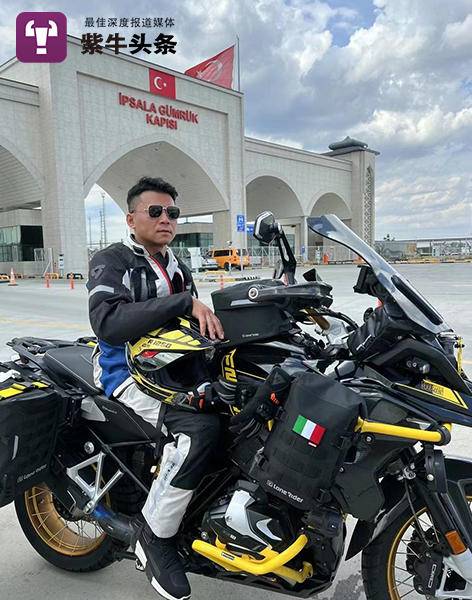
Deng Jianyi (Photo courtesy of the interviewee)
The head of the motorbike team, Deng Jianyi, 40, also leads a local motorcycle club comprised of overseas Chinese in Italy. For Deng, a seasoned motorcycle enthusiast, the dream of riding his motorcycle from Italy to his homeland had been long-standing.
Before making the decision, Deng shared his idea with fellow club members who were enthusiastic about it. As a result, eight other members joined him on the adventure, and another agreed to drive a support vehicle, supplying essentials like food and fuel for the team.
Having a keen interest in history, Deng proposed that they travel via the ancient Silk Road. "I wanted to learn about local customs along the Silk Road. This year marks the 10th anniversary of the proposal of the Belt and Road Initiative (BRI). So, I think such a travel route is meaningful," said Deng.
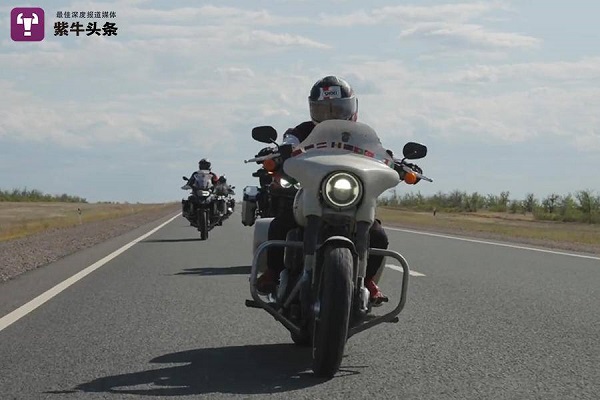
The overseas Chinese motorcyclists hit the road. (Photo courtesy of the interviewee)
Following the route of the ancient Silk Road, Deng organized an itinerary starting from Rome and traversing countries, including Greece, Turkey, Georgia, Russia, and Kazakhstan, before reaching Xi'an via Horgos in northwest China's Xinjiang Uygur Autonomous Region.
Throughout the journey, Deng observed numerous infrastructure projects under construction by Chinese companies. Particularly in Georgia's Caucasus Mountains, seeing a Chinese construction team at work gave them a sense of familiarity and comfort.
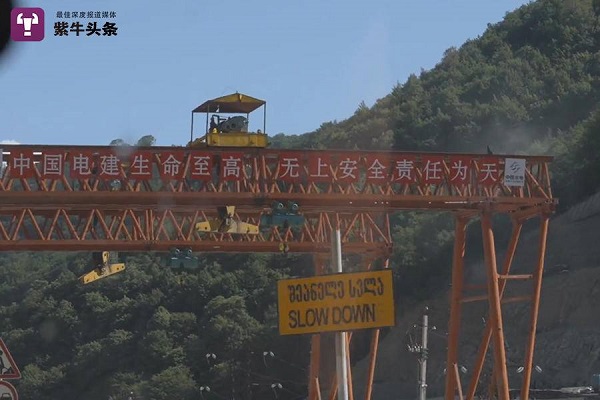
A Chinese company's construction site. (Photo courtesy of the interviewee)
Deng said he experienced firsthand the friendliness extended by people from Silk Road countries toward Chinese people.
"We were riding for over 10 hours, but as night fell, we found ourselves stranded in 'no man's land,' which posed a danger to us. Additionally, we lost contact with our support vehicle," Deng recollected.
Fortunately, they managed to leave the desolate area around 8 p.m. to 9 p.m., finding a village with around 10 households. They went from door to door in search of fuel.
"One family had fuel and was willing to help us. We spared the fuel we bought for each motorcycle. Thanks to this, we could ride to a petrol station to refuel our motorcycles," Deng said.
After traveling 6,200 kilometers, Deng and his team arrived at Horgos in Xinjiang on June 27.
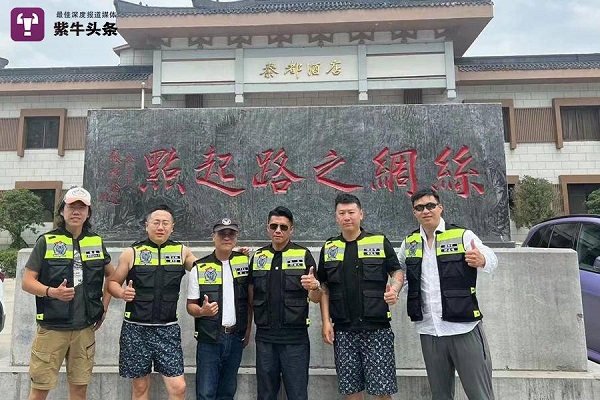
The motorcyclists pose for a photo in Xi'an. (Photo courtesy of the interviewee)
Continuing their journey through Xinjiang and northwest China's Gansu Province, they finally arrived in Xi'an. From there, they rode to their ultimate destination, Wenzhou city – their hometown.
"Wherever we went in China, we encountered paved and smooth roads. But not every place along our journey in overseas countries is accessible by paved roads. In some places, even though there are paved roads, road conditions are poor," Deng said.
The journey left an indelible impression on team members unfamiliar with the Silk Road, especially in relation to the BRI.
"In the past, I didn't understand the meaning of the BRI. However, after the motorcycle journey, I knew that the BRI had brought changes to countries along the Silk Road," Deng said.
"The architectural style of many buildings in Türkiye is almost the same as that in China. Most taxis and police cars in Kazakhstan are made in China. The case I am most impressed by is a Chinese construction team in Georgia's mountains," Deng added.


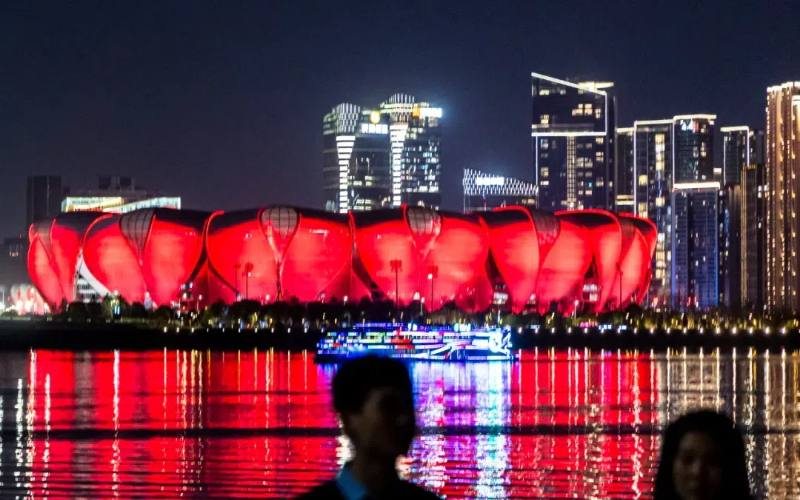


 play
play